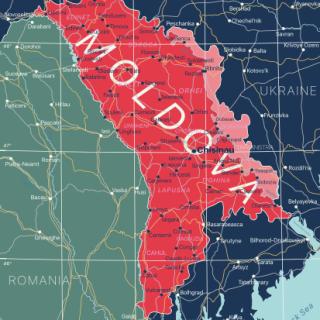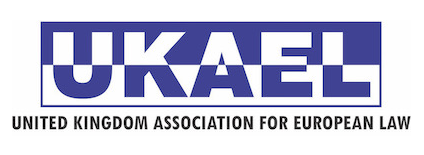The United Kingdom Association for European Law recently ran a webinar on ‘CJEU Jurisdiction, the Autonomy of the EU Legal Order and Arbitration’. Three senior academics offered their opinions on the European Court of Justice’s recent ruling in Komstoy v Moldova (C-741/19), which was announced on September 2nd. Professor Alan Dashwood, Dr Isabelle Van Damme and Professor Takis Tridimas offered incisive and varying analyses of the judgment and its wider significance for the EU legal system’s relationship with international law.
What was at issue in Komstoy v Moldova? To summarise, Komstoy, a Ukrainian energy investor, had a dispute with Moldova, which went to arbitration in Paris under the Energy Charter Treaty (ECT) to which Moldova, Ukraine and the EU are signatories. Neither entity, it worth pointing out, is an EU member or based in one. The French court referred three questions for a preliminary opinion from the Court of Justice, concerned with the meaning of investment under the ECT.
The CJEU took the opportunity to issue a more general statement on the use of international arbitration in intra-EU disputes. Drawing on its earlier ruling in Slovak Republic v Achmea (C-284/16), the court held that allowing international tribunals to interpret EU law would compromise the autonomy of the European legal order. In particular, it was unacceptable for non-EU bodies to interpret EU law even in an arbitration context where no binding precedent would be created.
Academic Analysis
Professor Dashwood, the first to speak, was highly critical of the ruling in Komstoy. He argued that the court’s fears were wholly misplaced, and that there was little danger to the EU legal order from tribunal rulings. Moreover, the court’s ruling arguably forced the EU to breach the ECT by expressly forbidding arbitration between member entities.
He suggested, too, that the ruling was unconstitutional. The court should not have used the preliminary opinion procedure to answer an entirely different question in addition to those asked of it. This was the more problematic because the preliminary opinion procedure did not allow interested parties, such as international investors, to put oral submissions before the court – removing their right to be heard.
Dr Van Damme was also critical. She shared the view that the preliminary ruling procedure was an improper way of addressing the issue, and suggested that the ruling might set up a conflict between the court of justice and national courts which are happy to allow arbitration proceedings. Indeed, arbitration is attractive to many commercial parties, and the Court’s decision to limit it in intra-EU cases risks making Europe a less commercially-friendly jurisdiction.
Dr Van Damme also cast doubt on the Court’s claim of jurisdiction over the ECT. The CJEU argued that it needed to ensure homogenous application of the rules across the EU, and that the principle of autonomy applied where there was a risk of infringing on EU law. But, as she noted, that is a very wide remit indeed for autonomy indeed. It is hard to see, on a purely principled application of this view of autonomy, what scope there could be for international tribunals at all.
Finally, Professor Tridimas was in some ways the least openly critical. Disagreeing with Professor Dashwood, he suggested that the CJEU’s extension of jurisdiction relying on Achmea was consistent with the previous case law. While the Court had allowed the jurisdiction of an arbitration panel in the EU’s bilateral treaty with Canada, within strict limits, the ECT was a multilateral rather than a bilateral treaty.
Because of the CJEU’s view of the EU as a ‘singular judicial space’, there was necessarily limited room for the jurisdiction of non-EU bodies. Professor Tridimas did not necessarily endorse this exceptionalist stance, however, and suggested that the ruling generated an unfriendly atmosphere toward arbitration within the bloc’s legal order.
The Student View
From the perspective of a fresh-faced week 5 GDL student like myself, it was a highly interesting event. Debates about autonomy and the constitutional role of the CJEU clearly respond to the same themes we studied in seminars – Professor Dashwood even at one point invoking the judgment in Internationale Handelsgesellschaft as an illustration of the CJEU’s wider principles.
Although the specifics of international arbitration and the court’s caselaw on it are well beyond the syllabus, I found events like this are good ways to develop your broader knowledge and interest in the subject matter, bringing it from the pages of the textbook into real life.
Finally, the political dimensions of this case are highly pertinent to the UK. Although sovereignty and legal autonomy were key in the UK’s Brexit debates, the UK conversation tends to forget that these concerns are shared by the CJEU. This matters because in Northern Ireland, the role of the CJEU is a substantial bone of contention in the current renegotiation of the Protocol in response to the difficulties it creates for Ulster and British businesses.
The CJEU’s insistence on the autonomy of EU law makes it difficult for the Commission to accept the flexibilities on enforcement that the UK has offered, as these would ultimately be governed by UK courts and not EU ones. Likewise, the UK’s emphasis on unfettered sovereignty made it unwilling to accept a customs union with a legal regime governed by the CJEU, and to accept the court’s jurisdiction over Northern Ireland in the present.
Ultimately, it underscores the continuing relevance of EU law for one’s legal development – Brexit or otherwise.
For those who’d like more on EU autonomy, see the linked pdf by City’s own Panos Koutrakos (pp. 90–103). For others interested in events run by the UKAEL, check out their website – student membership costs £30 for three years, and is well worth the investment. With a student evening with Freshfields on Wednesday 17th November, and a number of other events this term, I will certainly be returning!
Thomas is a GDL student and aspiring barrister at City. He intends to practice at the commercial or commercial chancery Bar, specifically in shipping and energy. He originally grew up in Newcastle upon Tyne before reading History at Peterhouse, Cambridge, going on to complete MPhil and doctoral research in the history of political and religious ideas in late antiquity and the early middle ages. More broadly, he is interested in modern politics, international relations and commerce – particularly the UK’s evolving relationships with its neighbours. Beyond the intellectual life he enjoys a bracing northern country walk, a good day’s sail, and a well-earned pub quiz victory!




